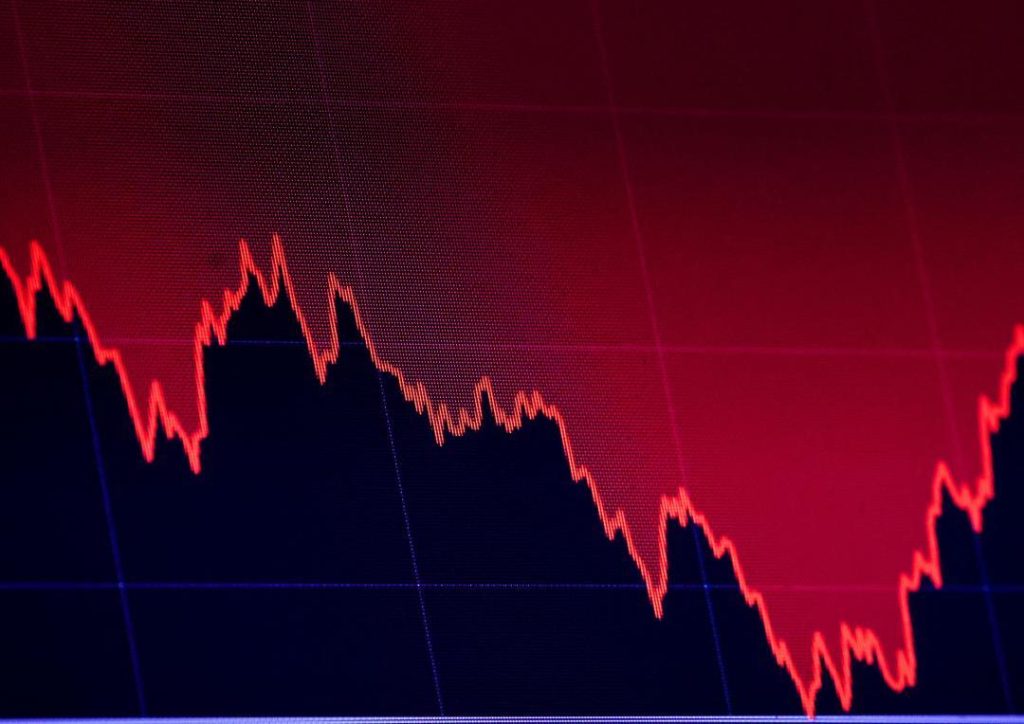
Bloodbath in US Markets: S&P 500 and Nasdaq at over 6-month lows
The US stock market witnessed a massive selloff on Monday, with the S&P 500 and Nasdaq indexes plummeting to their lowest levels in more than six months. The anxiety among investors was palpable as they responded to news that US President Donald Trump was set to announce his plans for tariffs, fuelling concerns about a potential recession.
At 09:44 am (US time), the S&P 500 index had dropped by 81.90 points, or 1.47%, to 5,499.04. The Nasdaq, which is heavily weighted with technology stocks, fell by 409.48 points, or 2.36%, to 16,913.52. The Dow Jones Industrial Average, which is a blue-chip index of 30 major US companies, declined by 453.19 points, or 1.45%, to 23,649.64.
The bloodbath in the US markets was mirrored in other major indices around the world. The MSCI All-Country World Stock Index, which tracks stocks in 45 countries, fell by 1.3%. In Europe, the Stoxx 600 index dropped by 0.8%, while in Asia, the Nikkei 225 index in Japan fell by 1.4%.
The selloff in the US markets was largely driven by concerns about the impact of Trump’s planned tariffs on the global economy. The tariffs, which are expected to be announced in the coming days, could lead to a trade war between the US and other major economies, including China, the European Union, and Mexico.
Trump has been critical of the trade policies of other countries, and has threatened to impose tariffs on billions of dollars’ worth of goods imported into the US. While the tariffs are intended to protect American industries and workers, they could also lead to higher prices for consumers and a reduction in global trade.
The anxiety about the tariffs was compounded by concerns about the health of the US economy. While the economy has grown steadily in recent years, there are signs that growth is slowing, and some economists are warning of a potential recession.
In the wake of the selloff, investors are left wondering what the future holds for the US markets. While the tariffs may provide a short-term boost to certain industries, such as manufacturing, they could also lead to higher prices and reduced consumer spending, which could have a negative impact on the overall economy.
In a statement, Trump said that the tariffs were necessary to protect American industries and workers, and that he was willing to negotiate with other countries to reach a fair trade deal. However, the announcement of the tariffs was met with criticism from many business leaders and economists, who argue that they could lead to a trade war and a negative impact on the global economy.
The selloff in the US markets has also led to concerns about the stability of the financial system. While the Federal Reserve has cut interest rates in recent months to support the economy, there are concerns that the tariffs could lead to a credit crunch and a reduction in lending.
In a statement, the Federal Reserve said that it was “closely monitoring” the situation and was prepared to take action if necessary to support the economy. However, the central bank’s ability to respond to the tariffs is limited, and some economists are warning that the situation could be beyond its control.
In conclusion, the bloodbath in the US markets is a clear indication of the uncertainty and anxiety that exists among investors. The planned tariffs by Trump have sparked concerns about a potential trade war and a negative impact on the global economy. While the tariffs may provide a short-term boost to certain industries, they could also lead to higher prices and reduced consumer spending, which could have a negative impact on the overall economy.
Source:
https://www.reuters.com/markets/us/futures-tumble-tariffs-fuel-recession-worries-2025-03-31/




